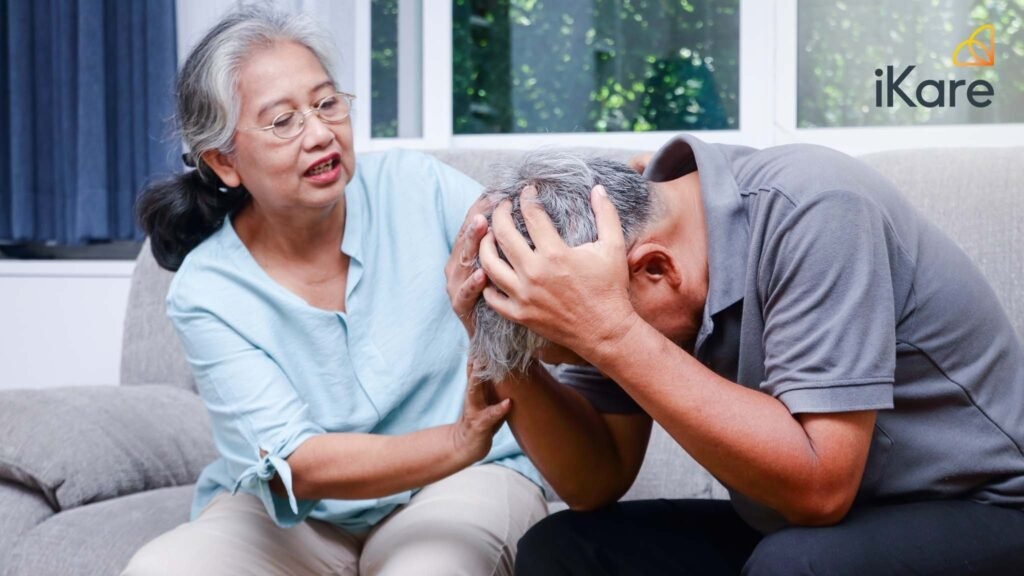Elderly Home Care Services Singapore: Compassionate Support for a Dignified Life
In recent years, the demand for Elderly Home Care Services Singapore has significantly increased. As the nation experiences a rapidly aging population, families are seeking ways to ensure that their elderly loved ones receive quality care without compromising their comfort or dignity. Providing personalized support within the familiarity of one’s own home has emerged as a preferred alternative to institutional care. These services cater to various needs, ranging from basic assistance with daily activities to specialized medical attention, offering peace of mind to families and a better quality of life for seniors.
The Need for Home Care in Singapore’s Aging Society
Singapore is one of the fastest-aging countries in Asia. According to statistics, by 2030, one in four Singaporeans will be aged 65 or older. This demographic shift has created a pressing need for sustainable elderly care solutions. While nursing homes and senior living communities exist, many seniors prefer to age in place—in their own homes, surrounded by familiar routines and loved ones.
This preference highlights the importance of elderly home care services. These services not only allow seniors to remain in a familiar environment but also promote independence, emotional well-being, and physical health. Personalized home care plans can be designed to fit the unique needs of each individual, from companionship and light housekeeping to 24/7 medical care.
Key Benefits of Elderly Home Care Services
-
Personalized Attention
Unlike nursing homes where staff must divide attention among several residents, home care offers one-on-one support. Caregivers can focus solely on the individual’s needs, creating a care plan that suits their specific health conditions, preferences, and lifestyle. -
Comfort and Familiarity
Home is where the heart is. For the elderly, familiar surroundings can help reduce confusion, stress, and anxiety—especially for those suffering from dementia or Alzheimer’s disease. Familiar environments are conducive to better mental and emotional health. -
Family Involvement
With home care, families can remain closely involved in the caregiving process. This involvement helps build trust among caregivers, seniors, and family members, ensuring smoother communication and faster responses to changing needs. -
Cost-Effective
Depending on the level of care needed, home care can be more affordable than long-term residential facilities. It allows families to pay for only the services required, whether it’s part-time, full-time, or live-in care. -
Improved Quality of Life
Elderly individuals receiving care at home often report higher levels of satisfaction and happiness. The ability to stay within the community, maintain daily routines, and receive tailored support all contribute to better overall well-being.
Services Typically Offered
Elderly Home Care Services Singapore typically encompass a broad range of support options:
-
Companionship: Emotional support, conversation, and accompaniment to appointments or social outings.
-
Personal Care: Assistance with hygiene, bathing, dressing, and grooming.
-
Medication Management: Ensuring medications are taken on time and in the correct dosages.
-
Nursing Care: Administering injections, wound care, and monitoring health conditions.
-
Rehabilitation Support: Physical therapy, occupational therapy, and post-surgery recovery assistance.
-
Dementia and Alzheimer’s Care: Specialized support to manage memory loss, confusion, and behavioral issues.
Choosing the Right Care Provider
Selecting the right home care provider is crucial to ensuring the safety and well-being of your loved ones. When evaluating Elderly Home Care Services Singapore, consider the following factors:
-
Experience and Qualifications: Check the training and certification of caregivers, especially for medical or dementia care.
-
Reputation: Look for reviews and testimonials from other families. Word of mouth and online reviews can be very revealing.
-
Flexibility: Ensure the provider offers customized plans and flexible schedules that can be adjusted as needs change.
-
Transparency and Communication: Choose an agency that values open communication and provides regular updates on your loved one’s condition.
-
Emergency Response: It’s essential to know how the provider handles emergencies or unexpected health issues.
Emotional and Social Benefits of In-Home Care
Beyond physical assistance, home care plays a vital role in the emotional and psychological health of the elderly. Many seniors suffer from loneliness and isolation, particularly if they have limited mobility or live alone. Companionship care offers regular social interaction, helping to alleviate feelings of depression and anxiety.
Furthermore, caregivers often become trusted companions over time, forming meaningful relationships with the elderly individuals they care for. This bond fosters emotional resilience, confidence, and motivation among seniors, encouraging them to stay engaged and active.
Challenges and Solutions
While Elderly Home Care Services Singapore offer many advantages, challenges do exist. These include:
-
Matching the Right Caregiver: Compatibility is key. Some agencies offer a trial period or allow families to request a change if the caregiver-client dynamic doesn’t work.
-
Cost Management: While home care can be cost-effective, it can still become expensive over time. Families may explore government subsidies or insurance plans designed for elder care support.
-
Caregiver Burnout: In some cases, family members may supplement professional care with personal time and attention. It’s important to balance caregiving responsibilities with self-care to avoid burnout.
The good news is that professional agencies in Singapore are continuously innovating to address these challenges, incorporating advanced technologies for health monitoring and offering caregiver support programs.
Government Support and Community Programs
The Singaporean government recognizes the growing need for elderly care and has implemented several programs and subsidies to support families. Initiatives like the Home Caregiving Grant, Eldershield, and the Community Health Assist Scheme (CHAS) are designed to ease the financial burden and make home care more accessible.
Additionally, community centers and non-profit organizations often collaborate with home care providers to deliver integrated services that cover both medical and social needs.
Looking Ahead
The future of Elderly Home Care Services Singapore is promising. As technology advances and awareness grows, more families are turning to in-home care as a viable, compassionate solution. From AI-assisted health monitoring to mobile care applications and virtual doctor consultations, the industry is evolving to meet the modern needs of an aging population.
Moreover, societal attitudes toward aging are changing. There’s a growing recognition that aging with dignity means more than just medical care—it’s about emotional support, social inclusion, and continued purpose in life. Home care services align perfectly with these values, offering a personalized approach that sees the elderly not just as patients, but as individuals with rich histories, preferences, and dreams.
Conclusion
In summary, Elderly Home Care Services Singapore provide an essential lifeline for seniors and their families. With a focus on dignity, comfort, and personalized attention, these services empower elderly individuals to age gracefully in their own homes. As the demand for such care continues to grow, families must stay informed, evaluate options carefully, and choose providers that align with their loved ones’ needs and values.
The journey of aging doesn’t have to be faced alone. With the right support, it can be a time of peace, reflection, and meaningful connection.







